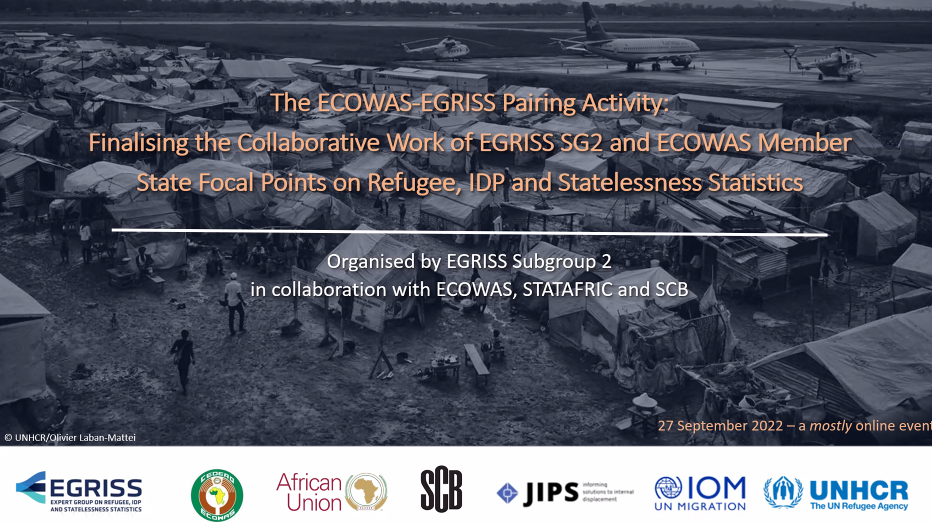Following the successful series of webinars on Official Statistics on Refugee and IDPs in the IGAD region, and building on interest from countries, EGRISS has been working in collaboration with STATAFRIC and Statistics Sweden to organize similar events with other African regional economic commissions. On 20th January 2022, the first webinar with the Economic Community of West African States (ECOWAS) took place. Building on growing momentum around migration and forced displacement statistics in the region, the first webinar was organized to raise awareness of the International Recommendations on Refugee and IDP Statistics and to share capacity development and technical support opportunities available from the organizing partners.
The online event was followed by a pairing exercise between ECOWAS Member States (Benin, Burkina Faso, Cabo Verde, Cote d’Ivoire, The Gambia, Ghana, Guinea, Guinea-Bissau, Liberia, Mali, Niger, Nigeria, Senegal, Sierra Leone, and Togo) and EGRISS Subgroup 2 members. During this activity, each National Statistical Office was paired with an EGRISS member, such as other national statistical institutions or regional/international organizations, to better understand their forced displacement data landscape and identify challenges in the production of official statistics on refugees and IDPs.
This exercise informed the organization of a second webinar on the 27th September 2022. The online event offered an opportunity for ECOWAS Member States to present on the findings of the pairing exercise and further discuss implementation opportunities and capacity development needs in the region. In addition, it offered a platform for peer-to-peer exchange between countries, which shared similar challenges in the production of refugee and IDP statistics, such as limited coordination among key stakeholders and and technical and financial capacity. Members States highlighted the event as a timely opportunity to learn more about the International Recommendations on Refugee and IDP Statistics, emphasizing growing interest in collaborating with the Expert Group. These activities will inform future engagement in the region with a potential in-person workshop with countries interested in concretely implementing the recommendations at national level.

